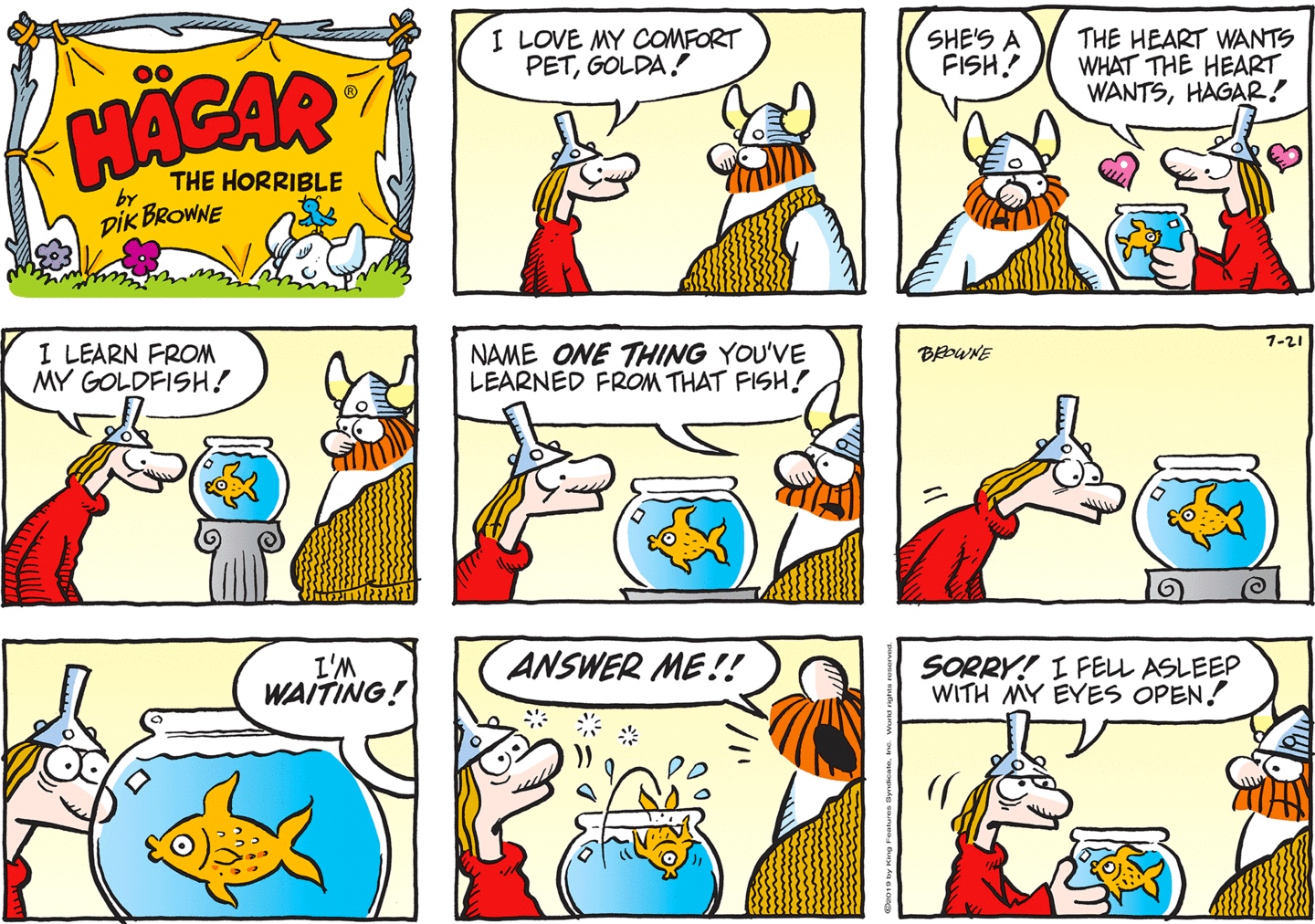Murdering Dick Tracy should be a joy, not a chore
Post Content
The Phantom, 7/21/19

So the Phantom is the middle of a Sunday plot about a mountain kingdom that’s taken Lean In feminism to its ultimate conclusion, which is that it’s a brutal, violent dictatorship but, like, run by women, you see. (It’s also right next to Bangalla, in Africa, and yet seems entirely populated by white people, hmm.) Anyway, today’s strip made me laugh and laugh, as our hero, significantly underestimating these Amazonians, just wanders in completely non-stealthily, frees their prisoner, and is like “Rule of law, ladies, you ever heard of it?” and then just gets immediately stabbed in the chest.
Dick Tracy 7/21/19

Welp, looks like Dick Tracy wasn’t successfully gunned down after all! I really like the helpful graphic the local news has chosen to accompany this story. “Usually it’s best to aim for center mass when trying to take someone down. But if you’ve got a scope and suspect your target might be wearing a Kevlar vest, why not aim for the head?”
Hagar the Horrible, 7/21/19

TIRED: Lucky Eddie wants to fuck a fish
WIRED: Lucky Eddie wants to be a fish






